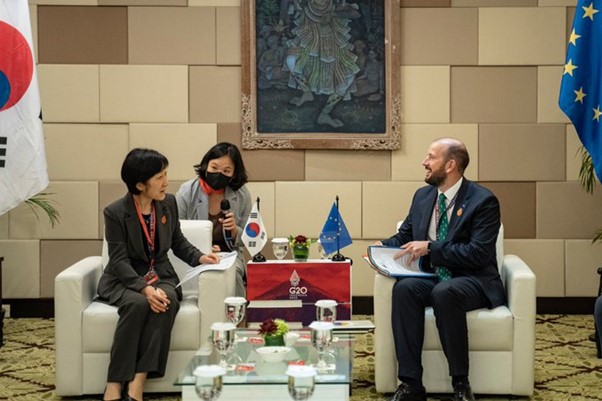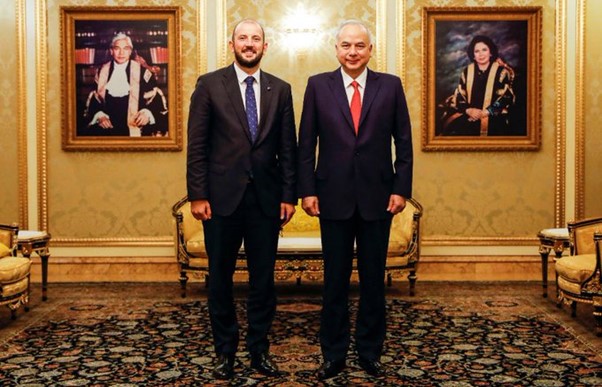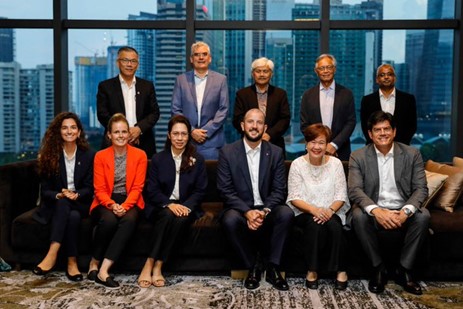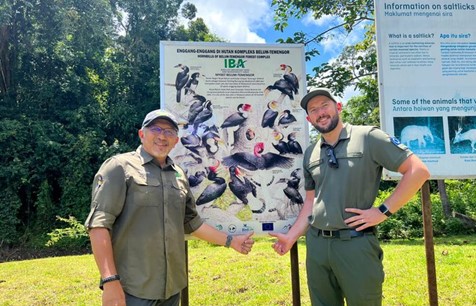Commissioner Sinkevičius’ Mission to G20 in Indonesia and to Malaysia | 30 August - 3 September 2022

date: 14/10/2022
These bilateral meetings were mainly intended to discuss about the upcoming Conference of the Parties to the Convention on Biological Diversity (CBD COP15), and were very useful in advancing agreed positions for the post-2020 Global Biodiversity Framework. Additionally, these meetings served to address other important environmental matters, such as deforestation (with the Indonesian ministers), circular economy and the global agreement on plastics (with South Korea), CITES (with Australia) and the link between Framework Convention on Climate Change (FCCC) COP27 and CBD COP15 (with Egypt and South Korea). Discussions on deforestation were constructive and Indonesia would welcome cooperation and assistance in that regard.
Official visit to Malaysia: 1 and 2 September
The Commissioner undertook an important and successful visit to Malaysia. The constructive dialogues with the Ministers and the Sultan of Perak, Deputy King of Malaysia, were highly appreciated by government representatives.

The meeting with the Minister of Plantation Industries and Commodities, Datuk Hajah Zuraida binti Kamaruddin, significantly helped to win Malaysia’s understanding of the proposed EU measures on deforestation. The explanations provided by the Commissioner – especially on the proposal being aimed at the EU taking responsibility rather than sanctioning third countries – were positively received by the Minister, who showed a clear willingness to cooperate.
Meetings were held with representatives of both civil society and business, providing a clearer view of the environmental prospects of these sectors in Malaysia. The Commissioner found that NGOs are implementing many initiatives, but it should also be noted that, in general, there is uncertainty about the economic consequences of the green transition.

The Commissioner’s field visit to the Royal Belum Forest provided a unique opportunity to witness Malaysia's efforts to protect biodiversity, as well as the role played by indigenous people. Indigenous people are learning to grow endemic plants in a small plantation in their village, and some 30 of them have been trained as rangers to patrol the forest against poachers.

In addition, during his visit to the sustainable palm oil plantation and the smallholders’ plantation, the Commissioner had the opportunity to discuss with palm oil smallholders about their challenges to make plantations sustainable according to Malaysian norms, and exchanged with the government organisation managing and supporting smallholders. The plantation visited is fully circular, as all the energy they need is produced through the burning of the waste of the oil palms. The plantation is also certified by the Roundtable on Sustainable Palm Oil (RSPO), and does not contribute to deforestation. Mainly Western companies, who want all the palm oil in their products to be fully sustainable, are buying this product.
Media coverage
The Commissioner had an interview with CNN Indonesia, focused on deforestation, biodiversity and CBD COP15, in particular in the Indonesian context as a mega-biodiverse country.
Also during his visit to Malaysia, the Commissioner gave five interviews both for TV and written and online press with Nikkei Asia and the Star, Astro Awani and TV3 (the most watched TV channel in Malaysia) and Bernama, the Malaysian National News Agency. All was complemented by strong presence on social media. Interviews focused mainly on the topics of deforestation and biodiversity, but also touched upon other issues, such as circularity, ASEAN and the consequences of Russian war of aggression in Ukraine.
